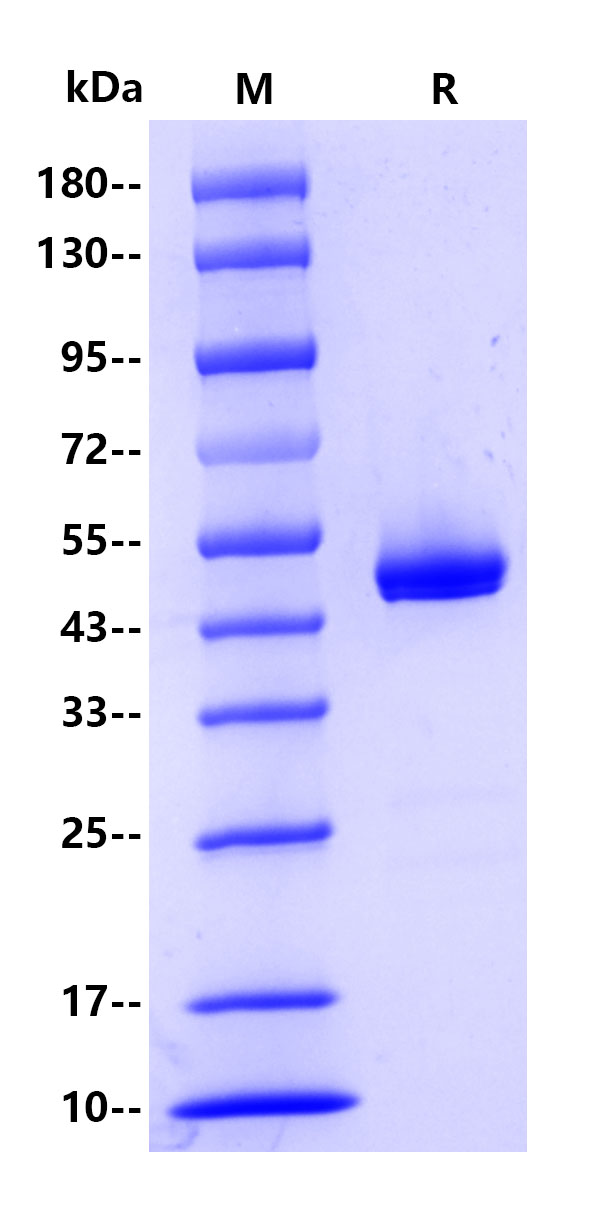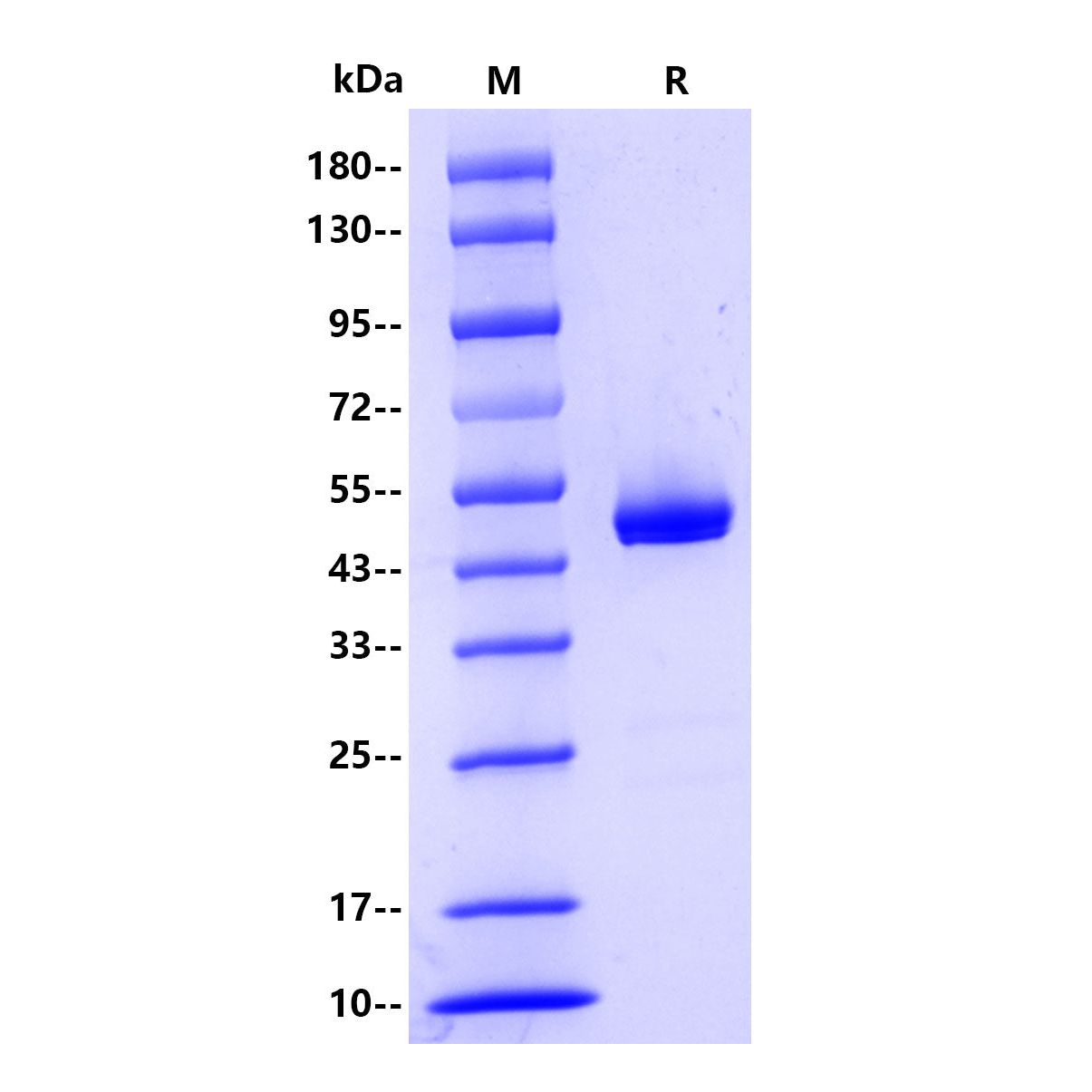Product Details
Product Details
Product Specification
| Species | Human |
| Synonyms | 5'-nucleotidase (5'-NT), Acid phosphatase 3, Ecto-5'-nucleotidase, Protein tyrosine phosphatase ACP3, Thiamine monophosphatase (TMPase), ACP3, ACPP |
| Accession | P15309 |
| Amino Acid Sequence | Protein sequence(P15309 Lys33-Asp386, with C-10*His) |
| Expression System | HEK293 |
| Molecular Weight | Theoretical: 42.6kDa Actual: 50kDa |
| Purity | >95% by SDS-PAGE |
| Endotoxin | <1EU/μg |
| Conjugation | Unconjugated |
| Physical Appearance | Lyophilized Powder |
| Storage Buffer | Lyophilized from a 0.2 μm filtered solution of 0.2M PBS, pH7.4. |
| Reconstitution | Reconstitute no more than 0.1 mg/mL according to the size in deionized water after rapid centrifugation. |
| Stability & Storage | · 12 months from date of receipt, -20 to -70 °C as supplied. |
Background
Prostatic acid phosphatase (PAP), also prostatic specific acid phosphatase (PSAP), is an enzyme produced by the prostate. It may be found in increased amounts in men who have prostate cancer or other diseases. PSAP was used to monitor and assess progression of prostate cancer until the introduction of prostate specific antigen (PSA), which has now largely displaced it. Subsequent work, suggested that it has a role in prognosticating intermediate and high-risk prostate cancer, and led to renewed interest in it as a biomarker.
Picture
Picture
SDS-PAGE



